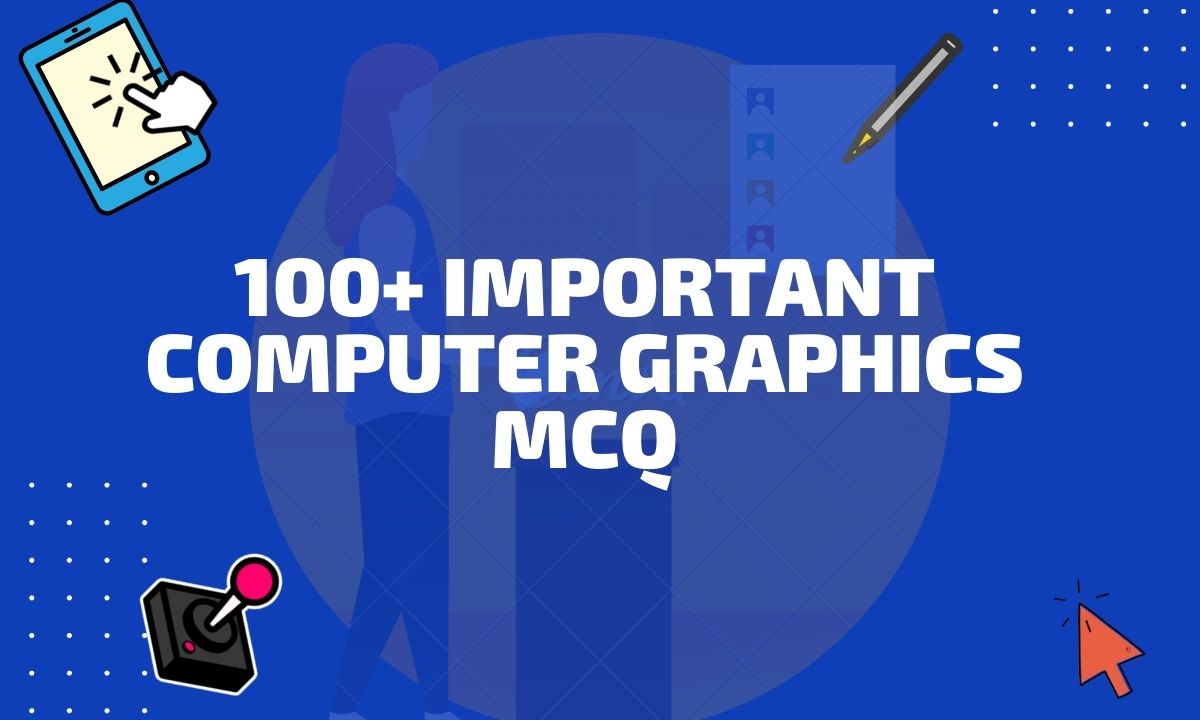Management refers to the process of organizing and coordinating activities within an organization in order to achieve its goals and objectives. This involves setting strategies and plans, allocating resources, and monitoring progress. Effective management involves identifying and addressing problems, making decisions, and communicating with team members and stakeholders. Top-level management personnel is directly related to management because they regulate the organization. It is an important function in any organization, as it helps ensure that work is completed efficiently and effectively.

Managers need to learn management in order to effectively lead and oversee their teams. Good management skills are essential for a manager to be able to set clear goals and objectives, plan and allocate resources, and delegate tasks to team members. They also need to be able to communicate effectively, make decisions, and solve problems as they arise. Additionally, managers need to be able to motivate and inspire their team members, as well as build and maintain good relationships with stakeholders. By learning management, a manager can develop the skills and knowledge necessary to effectively lead their team and contribute to the overall success of the organization.
Related: Different Types of Management Styles
What is Management?
Management is the art of getting things done through others. It involves setting clear goals and objectives, planning and organizing work, and using resources effectively to achieve those goals. A manager must be able to communicate effectively, make decisions, solve problems, and motivate and lead their team. Good management skills are essential for any organization to function smoothly and achieve success.
There can be many types of managers in an organization and it directly depends on what are the function of that organization. The aim of management is to form managers in such a way that they are capable of organizing and achieving organizational goals.
Popular Definitions of Management
Here are three popular definitions of management
“Management is the art of getting things done through people.” – Peter Drucker
“Management is the process of designing and maintaining an environment in which individuals, working together in groups, efficiently accomplish selected aims.” – Henri Fayol
“Management is the process of working with and through others to achieve the objectives of an organization.” – Robert Kreitner
Functions of Management
Management involves a range of activities and responsibilities that are essential for the smooth operation and success of an organization. These responsibilities, often referred to as the “characteristics of management,” include planning, organizing, leading, controlling, and decision-making. Effective management requires a combination of skills and knowledge, as well as the ability to adapt to changing circumstances and lead and inspire others. By understanding and effectively applying these characteristics of management, a manager can effectively lead their team and contribute to the overall success of the organization. Here are 5 popular functions of management.
1. Planning
Planning is a crucial aspect of management, as it involves setting goals and objectives for the organization and developing strategies and plans to achieve them. Planning requires managers to think ahead and anticipate potential challenges and opportunities that the organization may face. It involves determining what needs to be done when it needs to be done, and how it will be done. This may include creating budgets, allocating resources, and setting timelines. Effective planning helps ensure that the organization is working towards its goals in an organized and efficient manner.
2. Organizing
Organizing is the process of arranging and coordinating resources within the organization in order to achieve its goals and objectives. This includes determining who will be responsible for each task, how tasks will be coordinated, and how resources will be used. Organizing involves creating systems, processes, and structures that allow the organization to function smoothly. It may also involve delegating tasks and responsibilities to team members, as well as establishing lines of communication and decision-making processes.
3. Leading
Leading is an essential aspect of management, as it involves inspiring, motivating, and guiding team members toward the achievement of the organization’s goals. A manager who is an effective leader is able to set a positive example, communicate expectations, and provide support and direction to their team. Leading also involves building relationships with team members and helping them to develop their skills and knowledge. It may involve setting performance goals, providing feedback and coaching, and recognizing and rewarding good performance.
4. Controlling
Controlling is the process of monitoring progress toward the organization’s goals and objectives, and taking corrective action when necessary. This involves setting performance standards, measuring performance, and making adjustments as needed in order to ensure that the organization is on track to meet its goals. Controlling may involve analyzing data and making decisions based on that analysis, as well as implementing processes and procedures to ensure that work is completed efficiently and effectively.
5. Decision making
Decision-making is an important aspect of management, as it involves identifying problems, evaluating options, and choosing the best course of action. This may involve analyzing data, consulting with team members and stakeholders, and weighing the potential costs and benefits of different options. Effective decision-making requires managers to be able to think critically, consider multiple viewpoints, and make sound judgments. It is a crucial aspect of managing an organization, as it helps ensure that the organization is able to adapt and respond to changing circumstances in a timely and effective manner.
Important For you >> Answer of What is your management style?
Principles of management
The principles of management are a set of guidelines that outline the most effective ways to organize and coordinate activities within an organization. These principles, which include division of labor, authority, discipline, unity of direction, and unity of command, provide a framework for managing people and resources in a way that is efficient, effective, and conducive to the overall success of the organization. By understanding and applying these principles, managers are able to lead and oversee their teams in a way that promotes productivity and achievement of the organization’s goals.
1. Division of labor
The principle of division of labor involves breaking down tasks into smaller, specialized units, with each worker responsible for a specific aspect of the work. This allows for greater efficiency and productivity, as workers are able to focus on their specific areas of expertise and become more skilled in their specific tasks. For example, in a manufacturing setting, the assembly of a product may be divided into various tasks, such as welding, painting, and quality control, with each worker responsible for completing their specific task. By dividing tasks in this way, the organization is able to streamline the production process and reduce the time and resources required to complete the work.
2. Authority
The principle of authority involves the delegation of decision-making power to managers and supervisors, who are responsible for making decisions and giving orders within their area of responsibility. Authority is necessary for the effective functioning of an organization, as it allows for clear lines of communication and decision-making. Without authority, there would be confusion and chaos within the organization, as there would be no clear way to make decisions and give direction. Authority is typically hierarchical, with higher levels of management having more authority than lower levels.
3. Discipline
The principle of discipline involves the establishment of rules and procedures to ensure that workers follow established protocols and behaviors. Discipline is important for maintaining order and stability within the organization, as well as for promoting productivity and efficiency. Without discipline, there may be confusion and chaos, as workers may not know what is expected of them or how to behave. Discipline may be enforced through policies, procedures, and consequences for noncompliance.
4. Unity of direction
The principle of unity of direction involves aligning the efforts of all members of the organization towards a common goal. By working towards a shared objective, the organization is able to achieve greater unity and coordination in its efforts. This is important for ensuring that all parts of the organization are working towards the same end and that there is no duplication of effort or conflicting priorities. Unity of direction requires clear communication and a shared understanding of the organization’s goals and objectives.
5. Unity of command
The principle of unity of command involves ensuring that each worker receives orders and instructions from only one superior. This helps to avoid confusion and conflict, as there is a clear chain of command and decision-making authority within the organization. Without unity of command, workers may receive conflicting instructions from multiple supervisors, leading to confusion and inefficiency. Unity of command is important for maintaining order and clarity within the organization, as well as for promoting effective communication and decision-making.
For Your >> Post Secondary Education
Process of Management
The process of management involves organizing and coordinating activities to achieve goals and objectives. It involves setting strategies, allocating resources, and monitoring progress. It also involves problem-solving, decision-making, and communication. The process is ongoing and involves adapting to change. It is essential for any organization to function efficiently and effectively.
1. Planning
Planning in management involves setting goals and developing strategies to achieve them. It involves determining what needs to be done, when, and how. Planning helps ensure that the organization is working efficiently towards its goals. It includes creating budgets, allocating resources, and setting timelines. Planning helps organizations make informed decisions and be proactive.
2. Organizing
Organizing in management involves arranging and coordinating resources within an organization in order to achieve its goals and objectives. This may include determining who will be responsible for each task, how tasks will be coordinated, and how resources will be used. Organizing involves creating systems, processes, and structures that allow the organization to function smoothly. It may also involve delegating tasks and responsibilities to team members, as well as establishing lines of communication and decision-making processes.
3. Staffing
Staffing in management involves identifying the human resources needed to achieve the goals and objectives of the organization, and acquiring and retaining those resources. This may include recruiting and hiring employees, as well as training and developing the skills of existing employees. Staffing also involves evaluating the performance of employees and providing support and direction as needed. Effective staffing is important for the overall success of the organization, as it helps ensure that there are sufficient and qualified people to complete the work necessary to achieve the organization’s goals.
4. Directing
Directing in management involves inspiring, motivating, and guiding team members toward the achievement of the organization’s goals. It involves setting a positive example, communicating expectations, and providing support and direction. Directing also involves building relationships with team members and helping them to develop their skills and knowledge. It may involve setting performance goals, providing feedback and coaching, and recognizing and rewarding good performance. Effective directing is essential for the success of the organization, as it helps ensure that team members are working towards the same goals and that their efforts are aligned and coordinated.
5. Controlling
Controlling in management involves monitoring progress toward the organization’s goals and objectives, and taking corrective action when necessary. This may involve setting performance standards, measuring performance, and making adjustments as needed in order to ensure that the organization is on track to meet its goals. Controlling may involve analyzing data and making decisions based on that analysis, as well as implementing processes and procedures to ensure that work is completed efficiently and effectively. Controlling is an important aspect of management, as it helps ensure that the organization is able to achieve its goals in a timely and efficient manner.
Main Layers of Management
Layers of management can differ from organization to organization. In a small business, only one layer of management can handle all managerial tasks while in a large organization, more layers of management are required to handle all business tasks. There are main three layers of management.
1. Front Line Managers
The foundation layer of management consists of front-line managers who act as the cornerstone of the organization. They are responsible for managing the work of non-managerial employees and ensuring that the organization’s operations are running smoothly at the ground level.
2. Middle
The support layer of management consists of middle managers who provide the necessary structure and support to help the organization reach its goals. They are responsible for managing the work of front-line managers and other employees and for coordinating the activities of different departments or groups within the organization.
3. Strategic layer
The Strategic layer of management consists of senior and executive managers who are responsible for setting the overall direction and strategy of the organization and for making high-level decisions. This layer of management is responsible for guiding the organization toward its long-term vision and for ensuring that it is on track to achieve its goals.
Overall, each layer of management plays a critical role in the success of the organization and works together to ensure that the organization is functioning effectively and efficiently.
Popular Styles of Management
Effective leadership is crucial for the success of any team or organization. One key aspect of leadership is the management style that is used. There are many different management styles that can be employed, each with its own unique strengths and limitations. Some popular management styles are:
- Autocratic: This style involves the manager making decisions on their own and expecting their team to follow those decisions without question. This can be effective in situations where efficiency is a priority, but it may not promote creativity or independent thinking.
- Democratic: This style involves the manager seeking input and feedback from the team and involving them in decision-making. This can foster a sense of ownership and buy-in from the team, but it may be slower and less efficient than other styles.
- Laissez-faire: This style involves the manager giving their team a high level of autonomy and independence. This can be effective in promoting creativity and innovation, but it may be less effective in situations where direction and guidance are needed.
- Participative: This style involves the manager seeking input and feedback from the team, but ultimately making the final decisions themselves. This can be a good balance between autocratic and democratic styles, but it may not be as effective in situations where quick decisions are needed.
- Servant: This style involves the manager focusing on the needs of the team and putting their needs above their own. This can be effective in creating a positive work environment, but it may not be as effective in situations where the manager needs to assert their authority.
5 Roles of manager for successful management
Here are five key roles that managers can play to contribute to the success of their team and organization:
- Leader: A manager should be a leader and role model for their team, setting a positive example and inspiring others to achieve success.
- Communicator: A manager should be able to effectively communicate with their team, giving clear instructions, providing feedback, and fostering open and honest communication.
- Decision-maker: A manager should be able to make decisions in a timely and effective manner, considering the needs and goals of the team and organization.
- Planner and organizer: A manager should be able to plan and organize work, set goals and priorities, and allocate resources effectively.
- Problem-solver: A manager should be able to identify and address problems as they arise, finding creative solutions and addressing challenges in a proactive manner.
Management plays a crucial role in the success of any organization, and effective management involves the use of the management process which consists of the functions of planning, organizing, staffing, leading, and controlling. These functions work together to ensure that the organization is able to achieve its goals and objectives in a timely and efficient manner. Good management is essential for maximizing the productivity and performance of an organization and its employees and is a key factor in the overall success and growth of the organization. It is important for managers to have a strong understanding of the management process and to be able to effectively utilize these functions to lead and guide their teams toward success.



